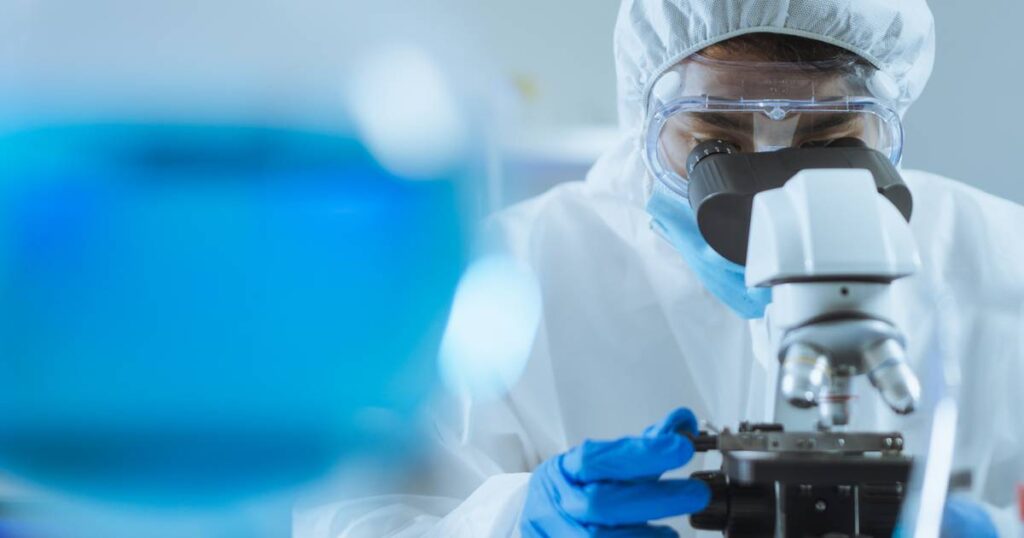According to a recent study, Boston University developed a novel Covid-19 version that killed mice at a rate of 80%.
The goal of the study is to comprehend the role of the virus’ spike protein in determining how deadly a variation is.
This was accomplished by attaching the highly immune-evading Omicron spike protein to the “backbone” of an original Covid virus from the beginnings of the epidemic, according to researchers at Boston University’s Biosafety 4 research facility.
“We generated chimeric recombinant SARS-CoV-2 encoding the S gene of Omicron in the backbone of an ancestral SARS-CoV-2 isolate and compared this virus with the naturally circulating Omicron variant,” the paper published on biorxiv awaiting peer review reads.
“While Omicron induces a mild, non-fatal infection in K18-hACE2 mice, the Omicron S-carrying virus causes a severe illness with an 80% fatality rate.
“This suggests that whereas primary determinants of viral pathogenicity reside outside of S, the vaccination escape of Omicron is dictated by mutations in S.”
The article has received harsh criticism from American molecular biologist Richard H. Ebright, a vocal opponent of gain of function viral research.
“The research is a clear example of gain of function research,” he told Daily Mail UK.
“It is particularly alarming that this new US-government ePPP research appears not to have undergone the prior risk-benefit review required by US-government policies, similar to the previous US-government ePPP research on chimeric SARS-related coronaviruses at Wuhan Institute of Virology that may have caused the pandemic.”
Gain of function research is required to remain ahead of any potential pandemic risks facing the human species, experts have also suggested.
Gain-of-function studies could aid in the development of new technologies, the testing of scientific hypotheses, and the discovery of infectious disease cures, according to a team of scientists quoted in a Conversation article.
For instance, when the first SARS-CoV outbreak happened in 2003, researchers created a method to investigate the virus in the lab. One of the experiments was to grow the virus in mice so they could study it.
A model for studying the virus and evaluating potential vaccinations and therapies was developed as a result of this work.
There is no such thing as a risk-free experiment with contagious pathogens, according to the article.
The breed of mice used in the study was one restriction acknowledged in the Boston University research publication, as other breeds are more comparable to people.
As a result, it is more difficult to estimate the variant’s human death rate.
Researchers create a novel Covid version that kills mice 80% of the time.

